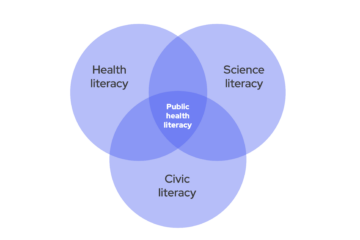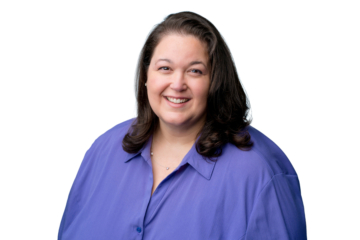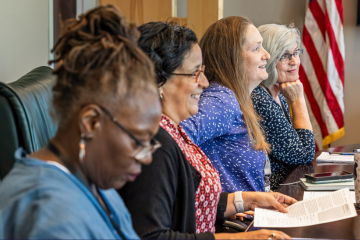A year ago, I was starting my final semester of my MPH coursework, writing my master’s thesis, interning at the CDC, and applying to post-grad positions. Again and again, I answered the question: “Describe your interests, strengths, and qualifications for this position, and how it will benefit your long-term career plans.”
My biggest obstacle was always the word limit — because I want to do it all: to address social determinants of health; to improve health equity; to conduct, communicate, and translate research into action in the form of policy. That’s a tall order for a career in public health, and a near-impossible expectation for a year-long fellowship. But in the past six months at the de Beaumont Foundation as the ASPPH Philanthropy Fellow, I’ve been able to work on projects related to all of the above:
- Addressing social determinants, translating research: With the BUILD Health Challenge, I’ve learned about how decisions are made about a national program that brings together partners from healthcare/hospital systems, public health departments, and nonprofit community organizations to address social determinants of health. I’ve also been engaged in communicating the research on, and evaluation of, these cross-sector collaborations.
- Targeting health equity, conducting research: Collaborating with coauthors from around the country, I crafted research studies based on data from the Public Health Workforce Interests and Needs Survey (PH WINS). The questions we’re addressing with this work target issues of equity and diversity in the public health workforce. Because of my training and interest in environmental health, I’m also working on a project characterizing the environmental health workforce.
- Research to policy: In preparations for the launch of CityHealth, I’ve learned about the process for using and communicating research to generate political will around policies that impact public health.
- Action-oriented research: Through partnerships with the Public Health Foundation and National Network of Public Health Institutes, I’ve participated in a project developing evaluation of the public health courses offered through the TrainingFinder Real-time Affiliate Integrated Network (TRAIN).
- Communicating: I’ve participated in health-related conversations at local, regional, and national levels. Through attending meetings and events hosted by the American Public Health Association, the Washington Regional Association of Grantmakers, Grantmakers In Health, The Atlantic, the National Center for Healthy Housing, Kaiser Permanente, and the Metropolitan Washington Council of Governments, I’ve realized that while the conversation may take a different form, shape, or tone depending on who is in the room, there is broad support for, and innovative work on, improving population health, eliminating health disparities, and addressing social determinants of health.
Through these experiences, my perspective of the field and role of public health has changed. Beyond developing my research and communication skills, this fellowship experience is revealing the big-picture “why” and “how” of public health work. I’ll continue to ask these questions not only for the duration of my fellowship, but throughout my career:
- How can we articulate the value of public health across and with other sectors?
- How can we best conduct research that leads to action? Is our research question actionable, and have we partnered with those who have the authority to take action?
- When critically reflecting on the field of public health, what role can we play in being part of the solution?
During my MPH program, I proudly rooted my academic identity in my departmental affiliation with environmental health. While I’m passionate about environmental issues, the career I seek necessitates crossing disciplinary boundaries, a broad view of the field of public health, and viewing issues through multiple perspectives. By embracing this transitional stage of my career, I am more prepared to be a part of our field’s shift into “Public Health 3.0” which “emphasizes cross-sector collaboration and environmental, policy, and systems-level actions that directly affect the social determinants of health.”
I don’t want the work I do to be inaccessible within a silo, nor can I claim to work across and between silos before having a clearer understanding how the whole farm operates. This experience has given me a bird’s eye view, along with invaluable insight into how leaders prioritize the challenges and opportunities we face as a field – as well as the motivation to continue to develop as an advocate for public health.




